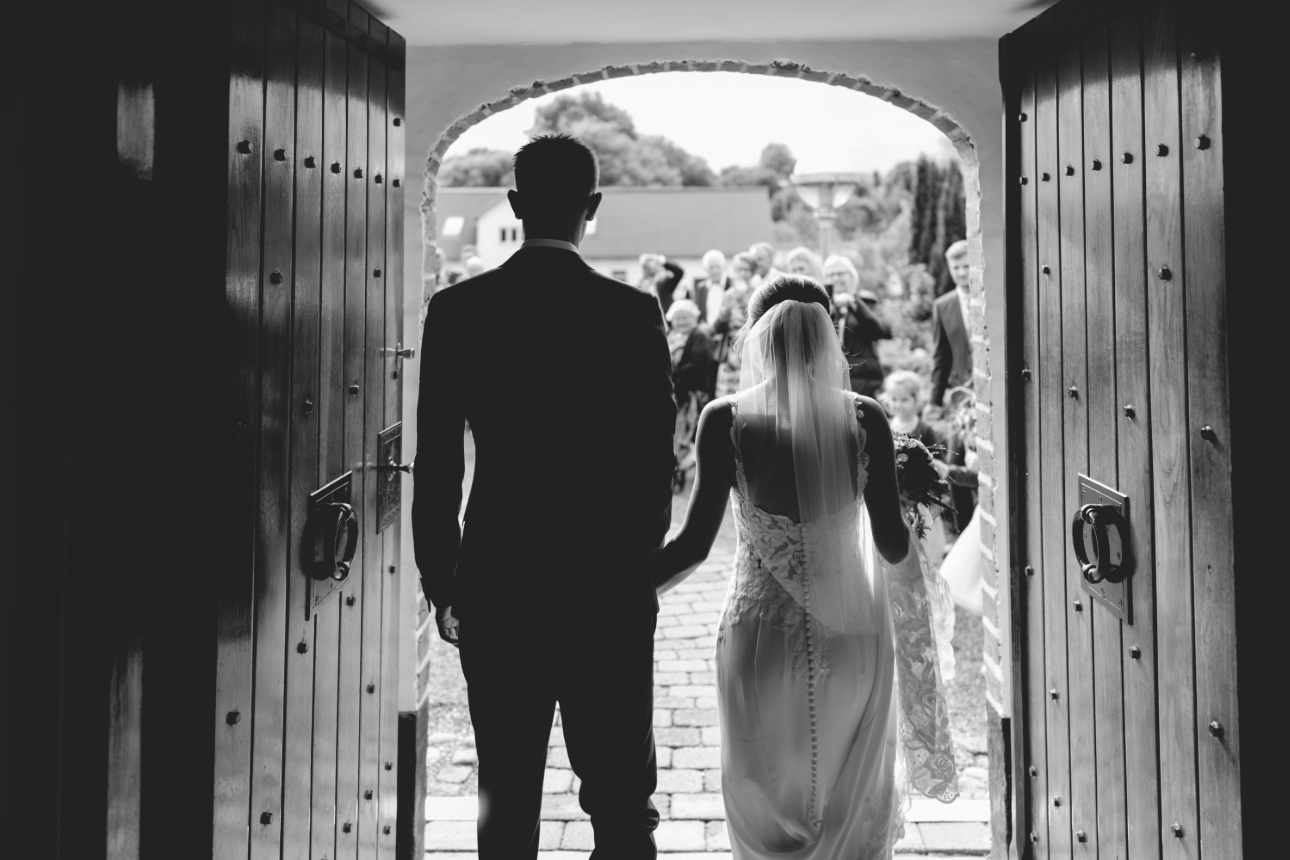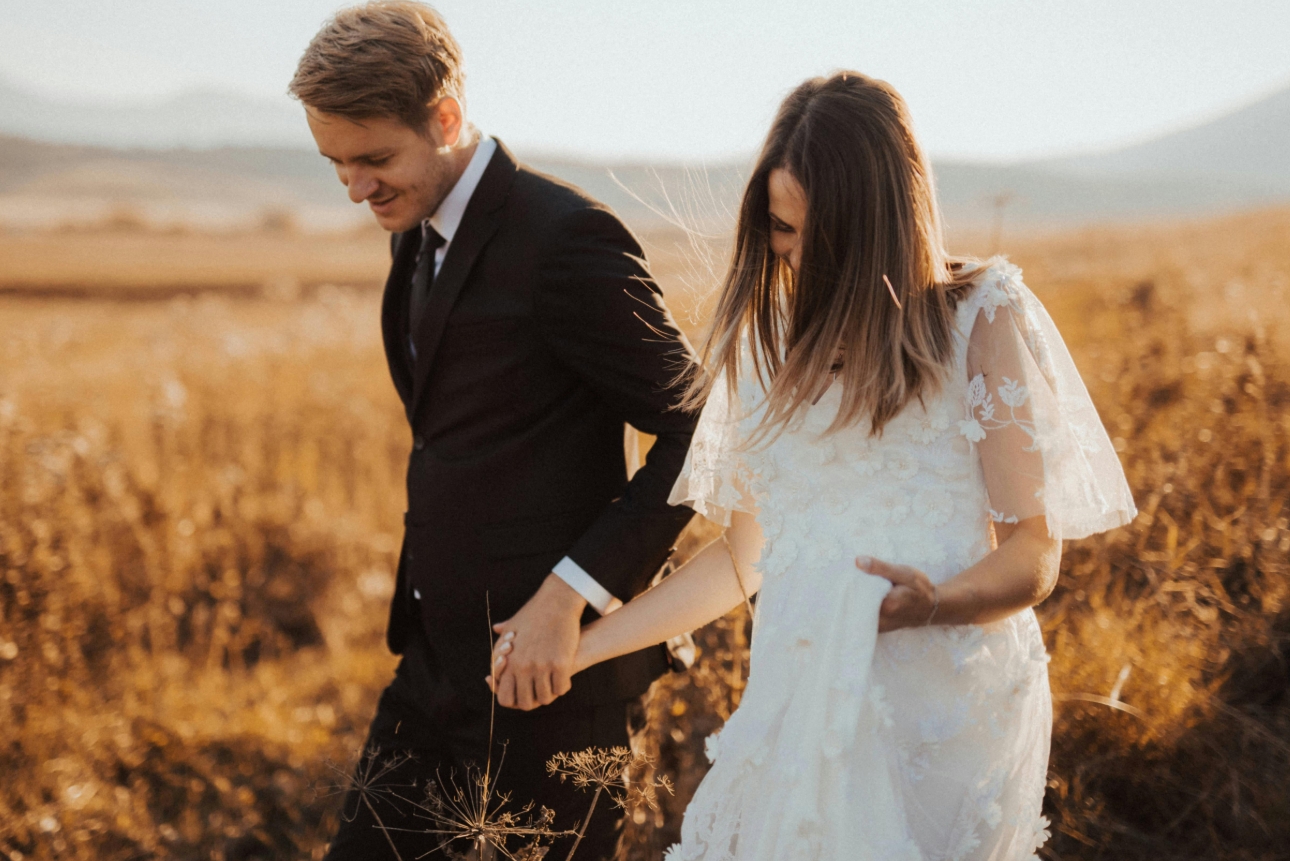Nyetimber Sparkling Wine Gifts, Perfect for Wedding, Bridesmaid, and Groomsmen Presents
Nyetimber, the pioneer of English sparkling wine offers a...

Wedding season is in full swing and it's a celebratory, joyous time filled with love and laughter. A wedding is the celebration of two people coming together in matrimony but what many forget is there are requirements to comply with to ensure the marriage is lawful within England and Wales. Here, Sophie Croft, an Associate at Stowe Family Law, highlights the considerations couples need to have...
"It may not be the most romantic thing to think about when you're in the midst of wedding planning, but it's really important to remember that if you want the benefits of being a married couple, your marriage does need to be legally sound.
The legal bit
"There are some important laws around marriage. Firstly, the marriage must be voluntary and neither party must be forced to enter into it -it's a criminal offence to force someone into marriage.
The marriage must be monogamous. Bigamy, i.e. being married to more than one person at the same time, is a criminal offence in England and Wales and polygamy results in a voidable marriage. Although polygamy and open relationships are becoming increasingly common, it's legally tricky to make these 'official' by way of marriage.
The parties must be over 18 and must not be within the prohibited degrees of relationship i.e., direct ascendants and descendants, siblings or extended family members.
Those entering into a marriage must give notice of their intent to marry at least 28 days before the ceremony. This involves making an appointment at their local registry office, preparing required documents such as ID and confirming their eligibility to marry (meaning that you're over 16 with parental consent or 18 without) and not already married.
Prior to the marriage is where parties may consider a pre-nuptial agreement. This is an agreement which sets on how assets, finances and debts are managed during the marriage and in the event of a breakdown of the marriage. This is not essential but can be a very useful document to have to provide clarity and avoid expensive disputes in the future. A post-nuptial agreement can also be drafted after the wedding ceremony which has the same effect.

The venue
"Choosing your venue is a lovely part of the wedding planning and is the start of where you begin to make your day truly yours. When choosing a venue for your wedding you need to ensure that it aligns with the legal requirements for a valid marriage ceremony.
"More people are choosing to not hold their ceremonies in traditional venues like churches but exploring other options. Many of these venues are licensed, and marriage ceremonies taking place there will mean you're legally married. However, some are still unlicensed so your ceremony would not be legal, and you would need to arrange a legal wedding at your local registry office. not result in a legal ceremony you may need to arrange a legal ceremony at your local registry office. This is often what is required if you have a wedding abroad, as your marriage may not legally valid when you get home.
"If you get married abroad, you must ensure that you comply with the legal marriage requirements in the country in which you choose to marry. If you have, then your marriage should be legally valid in England and Wales. This means that if you later reside or have connections with England and Wales, you can issue divorce and financial remedy proceedings here in the event of the breakdown of the marriage. If your marriage is not considered legal in England and Wales or you have not followed the correct procedure, then you will not be protected by the marriage laws.
The ceremony
"When planning your ceremony you may well decide to include vows, whether traditional, religious or personal. However, vows, and wedding rings are not legal requirements. What does need to happen after the ceremony if that both you and your new spouse sign the marriage scheduled in the presence of two or more witnesses.
"Once you are legally married you can request a copy of your marriage certificate and this can be used for administrative purposes such as changing your name and validating your marriage status.
"You may have been pronounced as the newly weds by an officiant, but if your marriage is not legally valid, and you live with your spouse, you will be classed as a cohabiting couple. Unfortunately, the law does not protect cohabiting couples in the same way it protects married couples. Assets, such as the family home, are not divided in the same way as they would be if the couple divorced. There is no automatic entitlement to financial, capital, spousal maintenance or pension claims.
"If you fear your marriage is not valid you may wish to take steps to protect your assets such as preparing a cohabitation agreement or registering a declaration of trust with the Land Registry to protect your interest in any property you own.
Happily ever after
"If you have recently got engaged then congratulations! This is such an exciting time for you and you are preparing for one of, if not the, most important day of your life. Enjoy every second and ensure you enter married life with a full understanding of how to ensure your marriage is legal and lawful."